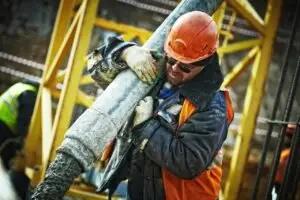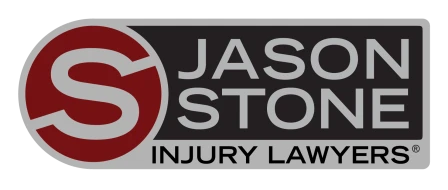 On a national scale, 231 out of every 10,000 full-time construction workers had workplace injuries that resulted in at least one missed workday, and 991 sustained fatal injuries in 2019. That same year, 19 Massachusetts construction workers lost their lives. If you have an on-the-job accident that results in injuries, you need to understand the workers’ compensation rules, benefits and claims process.
On a national scale, 231 out of every 10,000 full-time construction workers had workplace injuries that resulted in at least one missed workday, and 991 sustained fatal injuries in 2019. That same year, 19 Massachusetts construction workers lost their lives. If you have an on-the-job accident that results in injuries, you need to understand the workers’ compensation rules, benefits and claims process.
Are Construction Workers Eligible for Workers’ Compensation Benefits?
Massachusetts considers almost all workers under another’s service an employee, whether there is an oral, written or implied contract for hire. Construction workers are no exception. If you work for a general contractor or subcontractor, you are most likely an employee for workers’ compensation purposes.
Independent Contractor Classification
The construction industry is renowned for classifying workers as independent contractors, even when they work solely for one entity or individual. However, when you are under someone else’s direction, you are an employee, and your employer must have workers’ compensation for you. To claim you as an independent contractor, an employer must be able to show the following:
- You conduct your job without the employer’s control or direction
- The work you perform is outside the employer’s business
- You have your own business doing the work you do for the employer
The state assumes you are an employee — with rights to workers’ comp benefits — unless the employer can prove you meet all three criteria.
Subcontractor Classification
General or independent contractors often hire subcontractors to perform specialized work. However, the question again arises regarding the worker’s independence. If you work for a subcontractor, you are likely an employee under workers’ compensation laws. If you perform specialty work independently, you may still be eligible for workers’ compensation through the contractor who hires you.
Often, general contractors want to know that the subcontractors on their job sites have workers’ compensation coverage. A contractor may either ask you if you have insurance or require you to pay for coverage through the contractor’s policy. The liability risk for contractors is high, so they often ensure they are protected from claims if the subcontractor gets hurt.
What Benefits Are You Entitled to With Workers’ Compensation?
Workers’ compensation provides benefits that cover your medical expenses and wages if you sustain a construction site injury. The specific benefits depend on the severity of your injuries and how they impact your ability to work. WCI may also pay for vocational rehabilitation and lump-sum settlements for permanent loss of function, disfigurement or scarring.
Medical Expenses Benefits
Workers’ compensation insurance should cover if you require medical treatment after a job-related accident or incident. You are also entitled to medical benefits if you sustain stress or use injuries. The coverage pays for reasonable medical care and prescriptions for as long as you need it. You also get mileage reimbursement for trips you make to your appointments. You can choose your doctor. However, for the first visit, your employer has a right to choose who you see.
Wage Benefits
The wage benefits you might receive vary with how much your injuries affect what you can do for work and how long. The benefits break down as follows:
- Temporary partial incapacity: You can work, but to a lesser degree or in a different capacity that pays you less. You receive a maximum of 60% of your average weekly salary for up to 260 weeks.
- Temporary total incapacity: Your injuries prevent you from working for at least six calendar days, which don’t have to be consecutive. You receive 60% of your average weekly wage for the past year but no more than the state’s average. The benefit kicks in after five days of missed work, and you can receive it for up to 156 weeks.
- Permanent and total incapacity: Your injuries prevent you from working in any capacity or at any job. You receive 66% of your average weekly salary for the past year but no less than 20% and no more than the state’s average weekly wage. The benefit also pays a cost-of-living allowance.
Only the permanent and total incapacity benefit has no time limit. However, the length of time you receive wage benefits does not impact your medical benefits.
Vocational Rehabilitation Benefit
If you are medically stable but have permanent functional limitations, you are eligible as long as the workers’ compensation insurance company has accepted your claim. This benefit provides training for a new line of work.
Scarring, Disfigurement or Loss of Function Settlement Benefit
In addition to medical bills and wage benefits, you are entitled to a lump-sum, one-time payment for permanent scarring, disfigurement or loss of function. The scars must be on your hands, neck or face to receive the benefit of scarring. The amount you are entitled to will also depend on the location of the injury.
Can the Insurer Deny Your Claim?
Though workers’ compensation insurance is supposed to be a no-fault policy, the insurance providers dispute approximately half of all claims in Massachusetts. If the provider denies part or all of your claim, the law requires the company to send an Insurer’s Notification of Denial letter, delivered via certified mail. The letter must describe the reasons for the dispute and tell you about your right to appeal.
Know Your Options if the Insurer Denies Your Claim
If you receive a denial letter, you do not have to accept it. You can appeal the decision with the insurance company. You also have a right to bring your claim to the Department of Industrial Accidents.
The DIA recommends you enlist an attorney to help you through the dispute process. The lawyers at Jason Stone Injury Lawyers have experience with construction site workers’ compensation disputes and will look out for your rights and interests.
Understand the Dispute Process
The dispute process is often lengthy, moving through multiple stages before resolution. The process is initiated after the DIA receives your claim or an insurer’s complaint for modification, discontinuation or recoupment of benefits. The stages are as follows:
- Conciliation: An informal meeting between you, your attorney if you have one, the insurance company’s legal representative and a DIA conciliator. The purpose is to reach an agreement between you and the insurance company.
- Conference: Without an agreement, the process moves to an informal conference with an Administrative Judge. During the conference, you must prove you sustained a work-related injury and received medically necessary treatment for any aspect of your claim that the insurance company disputes.
- Hearing: If you or the insurer appeal the decision, your claim moves to a formal hearing. During the hearing, courtroom rules apply, and witnesses provide sworn testimony. The judge issues a Hearing decision.
- Industrial Accidents Review Board: An appeal of the judge’s decision goes to the IARB, which will review your claim and may call for additional evidence or testimony. The Board can reverse, uphold or remand the decision back to the original judge.
- Court of Appeal: Further appeals head to the Massachusetts Court of Appeals.
You can expect that your claim would go through most, if not all, of these stages.
How Can Jason Stone Injury Lawyers Team Help?
At Jason Stone Injury Lawyers, we know the challenges of obtaining workers’ compensation benefits. We can help you understand your rights. We can also work with you through the claims or dispute process. With our Stone Cold Guarantee, we don’t get paid until we settle your case. Contact us today for a free consultation. There’s No Obligation, Just Information®.
Not Trusting What You’re Being Told?
Better Phone Stone
800-577-5188
 START MY NO OBLIGATION CONSULTATION
START MY NO OBLIGATION CONSULTATION











